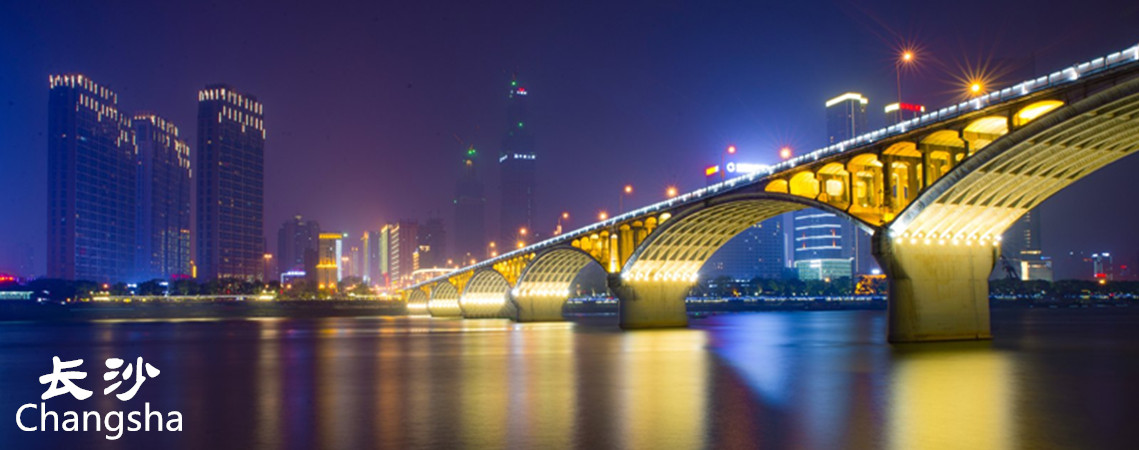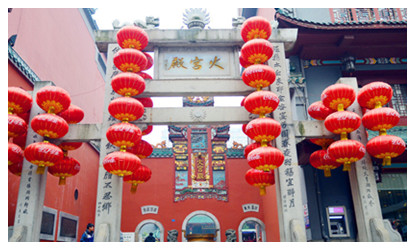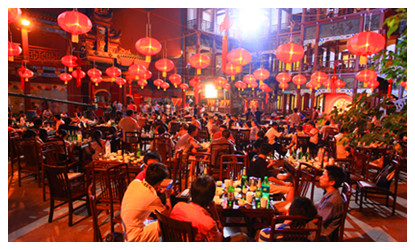
Fire Palace Temple Fair
 The Fire Palace Temple fair in the old days had a unique status in ordinary people's life. Besides various kinds of folk shows at the temple fair, such as storytelling, variety show, etc., a row of booths selling delicate and tasty foods also stood in front of it, boasting the most advanced and classic folk savory foods in Hunan.
The Fire Palace Temple fair in the old days had a unique status in ordinary people's life. Besides various kinds of folk shows at the temple fair, such as storytelling, variety show, etc., a row of booths selling delicate and tasty foods also stood in front of it, boasting the most advanced and classic folk savory foods in Hunan.It is a sacrificial rite of respecting fire, worshiping fire, using fire and managing fire. Changsha’s Fire Palace temple fair links a restaurant service closely with the Fire God Temple to form a cultural phenomenon with diversified cultural agents, which distinguishes the event from others in China. There is a fundamental difference between the cultural phenomenon and Nanjing’s Confucius Temple and Shanghai’s Town God's Temple in both form and cultural content.
The Fire Palace has become an important symbol of Changsha in being a historic and cultural city and an indispensable cultural element in the city. The Fire Palace temple fair focuses on Fire Temple opera, folk rap, folk skills, handicrafts and other ethnic performances, with diversified performing forms and rich cultural content. According to Shanhua Town Annals of the Emperor Guangxu Period in the Qing Dynasty, during the fire god offering period “each year a memorial ceremony is held for three days in the last ten days of the month of summer”. Namely, a grand sacrifice was held for the birthday of the Fire Palace.
 In addition, small sacrifices will be held in the Beginning of Spring and the Beginning of Autumn. The Fire God temple fair provides sacrifices, theatrical performances, folk snacks and folk art singing etc. The sacrifice is presided over by officials from Changsha and Shanhua County and joined by hundreds of others from civil society, businesses circles and the general public, featuring a grand ceremony.
In addition, small sacrifices will be held in the Beginning of Spring and the Beginning of Autumn. The Fire God temple fair provides sacrifices, theatrical performances, folk snacks and folk art singing etc. The sacrifice is presided over by officials from Changsha and Shanhua County and joined by hundreds of others from civil society, businesses circles and the general public, featuring a grand ceremony.
In recent years, apart from keeping some of the traditional sacrifice and blessing worshipping rituals, the temple fair has further expanded traditional local snacks and resumed the exhibition and sale of handcraft products such as the craft flour man, cotton sugar, and craft sugar painting etc. Additionally, it has introduced such performances as the Miao Drum from the Miao nationality, “Mao Gusi” and “Nuo Opera” from Tujia and “Da Liu Zi” from the Bai nationality.
Fire Palace Temple Fair is one of the oldest temple fairs in Changsha City. With a long history and rich cultural content, it is not only an epitome of the history of the ancient Fire Temple culture of Huxiang area, but also a highlight of the folk culture of Hunan. Fire Palace temple fire originated from ancient people’s worship of “fire”.







 Ask Questions ?
Ask Questions ?